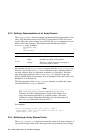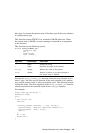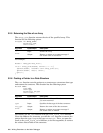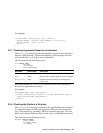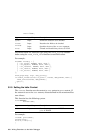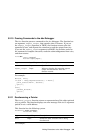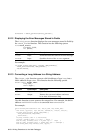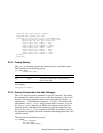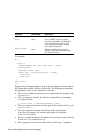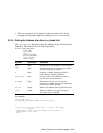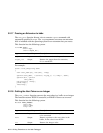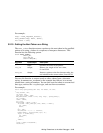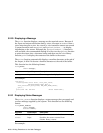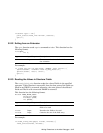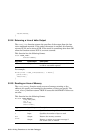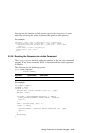
Argument
Input/Output
Description
command
Input Names the command to be executed
quote
Input If set to TRUE causes the quote
character, apostrophe, and backslash
to be appropriately quoted so that
they are treated normally, instead
of as special characters
expect_output
Input Indicates whether the extension
expects output and determines when
the function returns
For example:
do {
:
if(doit){
format(command, buf, type, addr, last, i, next);
context(True);
krash(buf, False, True);
while((line = read_line(&status)) != NULL){
print(line);
free(line);
}
:
addr = next;
i++;
Suppose the preceding example is used to list the addresses of each node in
the system mount table, which is a linked list. The following list describes
the arguments to the
format function in this case:
• The command argument contains the dbx command to be executed, such
as p for print.
• The buf argument contains the full dbx command line; for example,
buf might contain:
p ((struct mount *) 0xffffffff8196db30).m_next
• The type argument contains the data type of each node in the list, as in
struct mount *.
• The addr argument contains the address of the current node
in the list; for example, the current node might be at address
0xffffffff8196db30.
• The last argument contains the address of the previous node in the list.
In this case, last contains zero (0).
• The i argument is the current node’s index. In this case, i contains 1.
3–12 Writing Extensions to the kdbx Debugger



